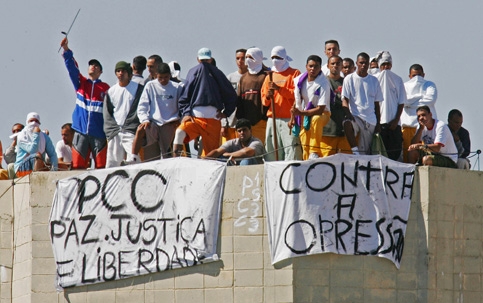Brazil’s largest organized criminal group, the PCC, is attempting to establish political influence, in a sign of its continued development from its origins as a prison gang.
According to Estadao, the First Capital Command (PCC) sought to get an unnamed lawyer elected to the Legislative Assembly of São Paulo state, where the group is based, and has been attempting to establish political influence for more than a decade.
The report outlines a major mobilization of PCC members to support the candidate in elections in 2010, and says that since 2002 the Electoral Court has quashed their candidacies on the basis of PCC ties.
The revelation came as part of an investigation by the state’s Public Ministry, which probed the criminal activities of 175 PCC members, as well as links between the group and corrupt police officers. According to the investigation, the PCC earns $55 million per year, made up of a monthly income of around $3.5 million from drug trafficking and $1 million from members’ contributions. The news emerged on the same day a report uncovered a PCC plot to kill São Paulo state Governor Geraldo Alckmin over his efforts to tackle drug trafficking.
According to Folha de São Paulo, the PCC has almost 8,000 members in São Paulo state, with 6,000 of those behind bars, and thousands more members throughout the country (see map). As highlighted by the map, the PCC is also present in neighboring Bolivia and Paraguay, with their presence in those countries recently recognized by the São Paulo state Attorney General’s Office.

InSight Crime Analysis
The move into politics is a seemingly inevitable development for any organized crime group once it reaches a certain level of sophistication, as has been seen for many years in Mexico and Colombia, so this news is unsurprising given the PCC’s growth.
Criminal groups are able to exercise political influence through violence by having corrupt officials elected, or by threatening or carrying out violence against those in power. As seen from the recent reports, the PCC has attempted both of these methods.
If the PCC had been successful in having someone elected to the state’s legislative assembly, it would have wielded influence over both regional and local security policy, posing a significant security threat.
The PCC’s activity in Bolivia has long been reported, however the confirmation of their presence by a high ranking official reinforces the Brazilian group’s influence in what is a growing cocaine processing hub.
SEE ALSO: Brazil News and Profiles

